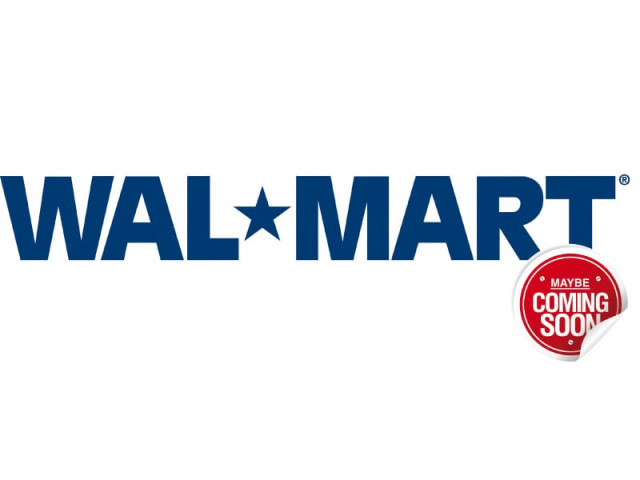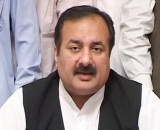Retail expansion: World’s largest chain silent on entering Pakistani market
Experts say that global retailers would find the country far more welcoming than its larger neighbour.

Retail expansion: World’s largest chain silent on entering Pakistani market
Even as its efforts to enter the Indian retail market have been rebuffed by regulatory constraints, Walmart, the world’s largest retailer, neither confirmed nor denied speculation that it was eyeing opportunities in Pakistan.
“We have not made any announcements concerning Pakistan,” said Megan Murphy, Walmart’s international corporate affairs manager in an e-mail. Walmart does not comment on market entry speculation, she added.
Murphy, however, said their priorities are to “concentrate on the markets where we already have operations and look for growth opportunities in markets where customers want to see us and where it makes sense for our long-term growth.”
While Pakistan clearly does not fall into the first category, its regulatory environment has been far more welcoming than neighbouring India, where the government was recently forced by populist protests to roll back reforms that would have allowed Walmart and other foreign retailers in. The Pakistani retail market, currently estimated at $42 billion and rapidly growing, is viewed as an attractive opportunity for foreign investors.
“To say Pakistan is not on Walmart’s opportunity radar screen, I don’t agree,” said Afnan Ahsan, CEO of Engro Foods, one of the largest consumer goods companies and a subsidiary of the Engro Corporation.
Pakistan is a very large and concentrated consumer opportunity. Karachi alone accounts for 40% of any consumer business, Ahsan said. “It is on every big player’s radar screen,” he added.
Despite recent troubles, Pakistan’s $210 billion economy has been mentioned by several global analysts as a potent force to be reckoned with in the future, including Goldman Sachs’ Jim O’Neill, the man famous for creating the term BRICs. Goldman includes Pakistan in its list called the Next Eleven, economies that are expected to become some of the most important sources of global growth.
The growing middle class – one-third of the country’s population of 180 million, of which 55% age below 30 – has already prompted international players like Germany’s Metro Cash and Carry and France’s Carrefour to enter the market.
MCC has recently acquired Makro and now has a network of 10 stores in Karachi, Lahore, Faisalabad and Islamabad. Hyperstar – Carrefour’s joint venture with the UAE’s Majid Al Futtaim Group – has one store each in Karachi and Lahore. It also announced opening of four more stores in Karachi and extend its chain to every metropolitan city in Pakistan.
Besides international wholesalers and retailers, local supermarkets – Imtiaz Supermarket in particular – have also been expanding their businesses.
Government officials also have a more welcoming attitude. “Personally speaking, Walmart will be very viable in Pakistan,” said Liaquat Ali Gohar, head of marketing at the Small and Medium Enterprise Development Authority. He said that the retail sector so far has not been able to meet the overall demand.
While the retail sector has grown significantly over the last few years, most of the development took place in the big cities. Misbah Iqbal, a consumer goods analyst at AKD Securities, pointed out that the rural people – about 55% to 60% of the total – are still underserved.
Pakistan is rapidly urbanising, Iqbal said. Despite many new entrants in the supermarket business, all of them are attracting huge traffic and growing significantly, she said, though largely in the major metropolitan areas.
Poor infrastructure in rural areas prevents investment. Nevertheless, many consumer goods companies are actively marketing to rural consumers, creating awareness about branded products, Iqbal said. Retailers will automatically benefit from that, she added.
Logistics – and the government’s inadequate investment in the road and rail infrastructure – are the key complaint for nearly all investors in the retail market. A source at Metro said that, when the company launched in Pakistan, its biggest problem was building up its supply chain infrastructure.
The source added that Metro’s attempts to improve its own supply chain have spurred its competitors to follow suit, and should improve the quality of products as well as reduce the amount of wastage for the entire agricultural sector. A lack of a cold supply chain, for instance, destroys 40% of the produce in several categories. Productivity could also be improved by good agricultural practices, especially in harvesting, post-harvesting and processing of the goods.
Despite the problems, however, Metro remains optimistic. “Pakistan is a country of 180 million, most of the consumers are young and going for quality products,” he said. “There are tremendous opportunities to grow the business,” he added.
Published in The Express Tribune, December 26th, 2011.



















COMMENTS
Comments are moderated and generally will be posted if they are on-topic and not abusive.
For more information, please see our Comments FAQ